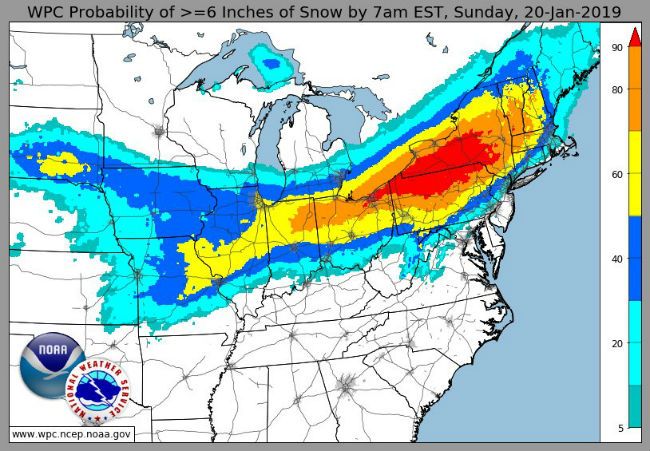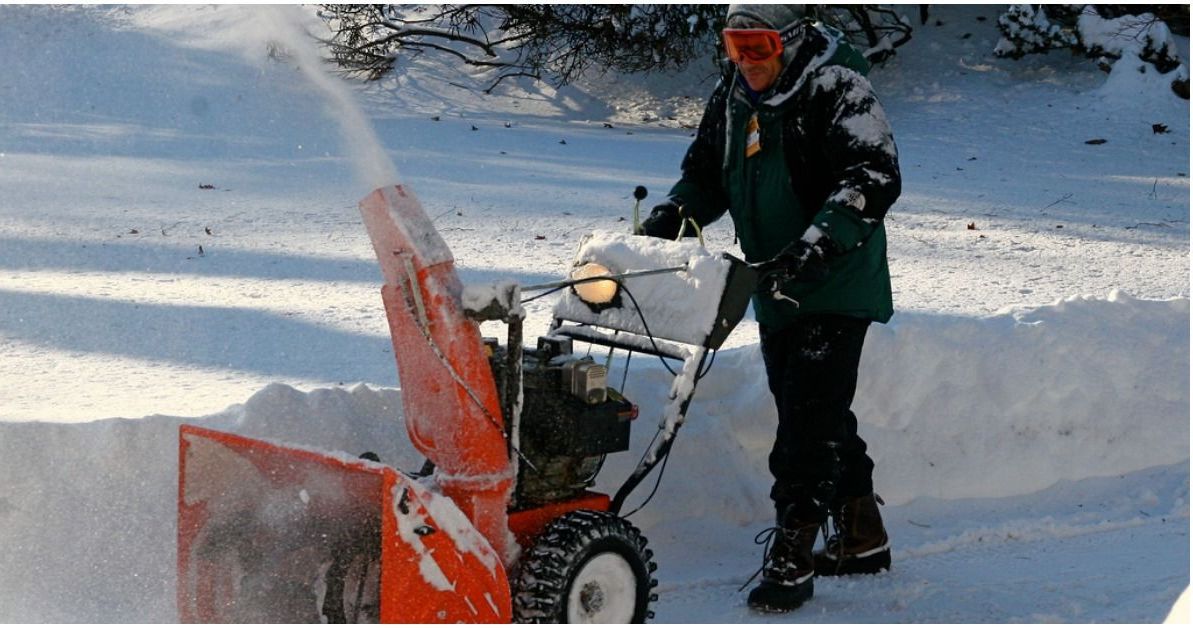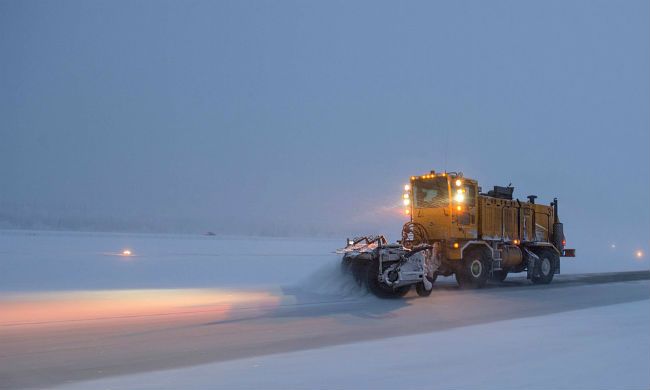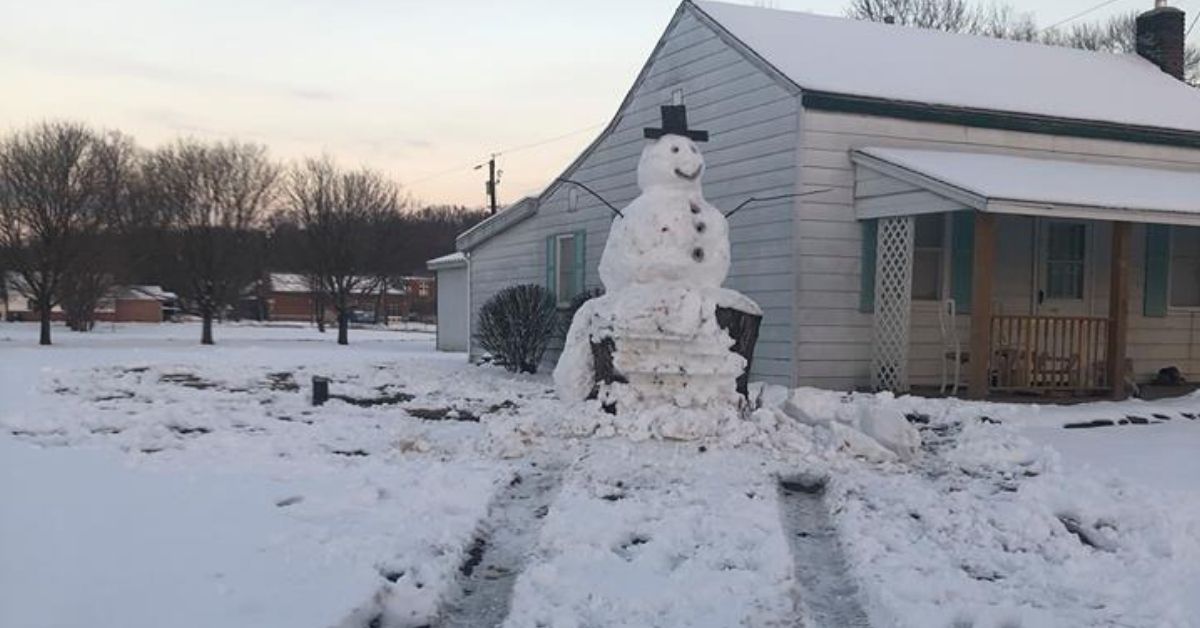If you hoped for a reprieve from cold and stormy winter weather, you'll have to wait a little longer because it will arrive in full force this weekend.
A storm watch throughout the East Coast warns that more than 100 million people could be affected by snowstorms and some of the year's coldest temperatures.
Just a few inches of snow are expected on the coast Friday, but states like Missouri, Iowa, Kansas, Nebraska, and Minnesota could be pummeled by up to six inches as the storm moves west.

A second storm will follow from the Northeast, bringing rain and snow throughout the weekend. There will be more rain or freezing rain closer to the coast, and up to a foot of snow (or possibly even more) further inland.
The worst hit regions will be parts of northern New England and New York state, where more than 30 inches of snow is possible.
The I-95 corridor is expected to see the worst of the storm's icy, snowy conditions, and weekend travelers are warned to expect delays.
Just in time for this second storm, forecast are predicting a sudden freeze that will chill the eastern half of the country on Sunday.
For some cities, like Boston, this string of bad weather could lead to "a roller coaster of temperatures" according to the National Weather Service, as snow turns to rain that freezes again.
Below-average temperatures will linger into next week, so prepare for a chilly start to your day on Monday.
Bitterly cold temperatures will move over the Eastern US Sunday night and continuing for Monday and Monday night. Rapidly falling temperatures behind the storm Sunday & Sunday night may resulting in flash freezes of wet pavement. Temperatures will moderate for Tuesday & Wednesday pic.twitter.com/WwbUMsDWPc
— NWS Eastern Region (@NWSEastern) January 17, 2019
And the good news doesn't stop there: next week a change to the jet stream could bring cold air south from the Arctic, meaning that Alaska will likely be warmer than Illinois as freezing temperatures grip most of the country.
As the snow falls this weekend, employees at the National Weather Service are still tracking it without pay during the ongoing government shutdown.
Despite the disruption, the National Oceanic and Atmospheric Administration insists their forecasts are dependable as their staff continue "mission-essential functions."
The shutdown, which began on December 22, is already the longest ever in U.S. history.


